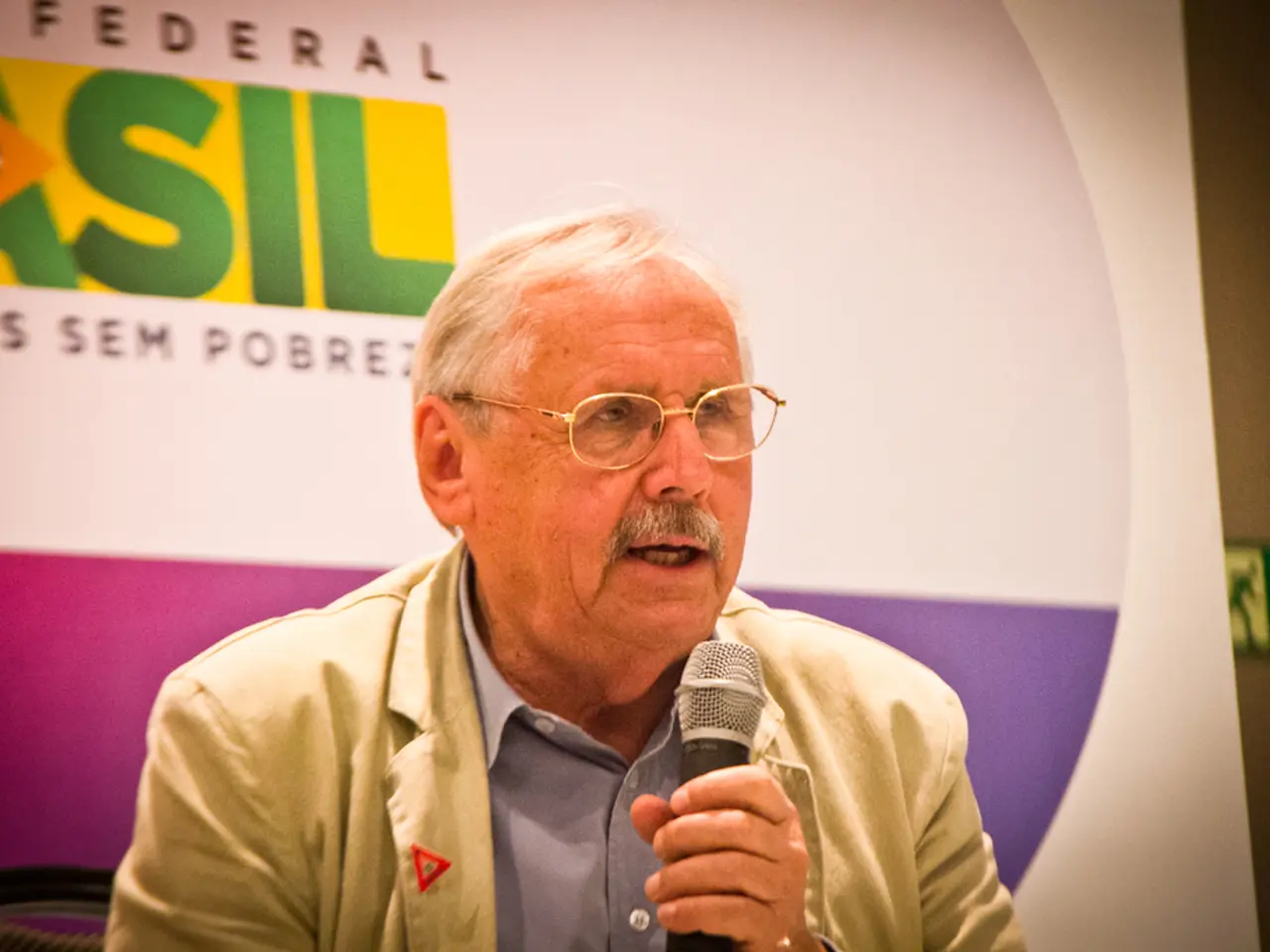The Fate of Grain Belt Express' LPO Loan Unraveled
The Grain Belt Express project, an 800-mile high-voltage transmission line planned to carry electricity from renewable energy projects in Kansas to more densely populated parts of the Midwest, has been a subject of controversy. Local opposition by landowners in the project's path has been a major concern, as they express worries about potential impacts on agriculture.
The project's developer, Invenergy, has announced plans to press on with the project using private financing, despite the setback. However, the project's future has been thrown into question following the termination of taxpayer-funded financial assistance by the Department of Energy (DOE).
The DOE agreed to act as a guarantor for the project, reducing risk for private lenders, but not making any payments itself unless the project failed. The decision to terminate the credit guarantee contract was made due to concerns about project viability, financial risks, or changed project conditions.
The DOE's undersecretary for infrastructure, Wells Griffith, noted that conditions precedent are "subject to the Department's satisfaction in its sole and absolute discretion." The decision, however, was made against the recommendation of career attorneys inside DOE's Loan Programs Office (LPO), who advised that rescinding the conditional commitment would constitute a breach of contract and would be illegal.
The Grain Belt Express, if completed, would be the country's largest power pipeline. However, the electricity sector has been slow to adapt, with the United States electricity sector adding just 55 miles of new transmission in 2023. According to the International Energy Agency, nearly 50 million miles of power lines will need to be added or replaced globally by 2040 to meet climate and clean energy goals.
The project has landed in the Trump administration's crosshairs, with Senator Josh Hawley of Missouri publicly taking issue with the project and its impact on farmers. In July, Sen. Hawley took the issue straight to the top, discussing the project with President Trump. Missouri's attorney general has also opened an investigation into the project and asked the state's Public Service Commission to reevaluate the project's approvals.
Rob Gramlich, president of Grid Strategies, believes federal support could be particularly impactful for interregional transmission lines like the Grain Belt Express. He notes that it is very hard to find state regulators to approve cost recovery for a multi-state line.
Jen Downing, who led LPO's Energy Infrastructure Reinvestment Program during the Biden administration, warned Congress that cancelling any loans could spell the end of LPO's loan making. The Grain Belt Express project, with its potential to bring renewable energy to densely populated areas, underscores the importance of federal support for such projects.
As the debate over the Grain Belt Express project continues, it serves as a reminder of the challenges and opportunities in transitioning to a clean energy future. The project's future remains uncertain, but its cancellation has raised questions about the role of the federal government in supporting such projects and the potential impact on the nation's renewable energy goals.








